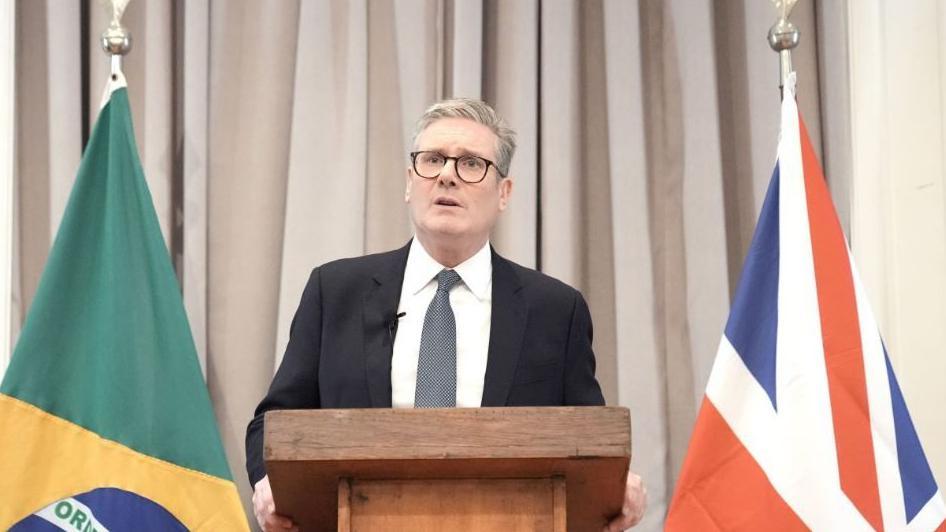Sir Keir Starmer, the leader of the UK Labour Party, has reaffirmed the country’s unwavering commitment to supporting Ukraine amid escalating tensions with Russia. Following recent developments, including Ukraine’s use of US-supplied longer-range missiles against Russian targets and President Vladimir Putin’s approval of a revised nuclear doctrine, Starmer emphasized that provocative rhetoric from Russia regarding nuclear capabilities would not sway UK support for Ukraine. During his address at the G20 summit, he underscored the necessity of providing Ukraine with the resources needed to defend itself for the foreseeable future, emphasizing that Britain’s assistance would remain steadfast amid global challenges.
The situation has intensified with Ukraine’s recent missile operations, marking a significant escalation in the conflict. The Russian government reported that Ukraine had attacked within its territory for the first time with US-backed munitions, following a green light from Washington for such actions. This military engagement raises the stakes, especially as Russia adjusts its nuclear posture, interpreting actions by non-nuclear states, backed by nuclear powers like the US, as direct threats to its sovereignty. During this critical juncture, Starmer reiterated the UK’s historical and ongoing support for Ukraine, vowing to ensure that the nation receives the necessary military assistance to continue its fight against Russian aggression.
At the G20 summit held in Brazil, Starmer addressed the conference amid discussions of the global impact of the Russia-Ukraine conflict. He reflected on the “1,000 days of sacrifice” endured by Ukraine since the onset of the war, urging an urgent conclusion to the conflict. His remarks included a direct appeal for Russia to withdraw its forces, highlighting the UK’s stance on international law and the sovereignty of nations. Despite challenges posed by the global economic landscape, Starmer maintained that strong British leadership is crucial in shaping responses to this crisis, showcasing the UK’s commitment to upholding international norms.
Starmer also commented on Putin’s absence from the G20 for three consecutive years, reinforcing the notion that the Russian leader’s decisions have led to his political isolation. The impact of this isolation is profound, as it signifies a broader rejection of Russia’s actions by the international community. During the summit’s discussions, leaders wrestled with crafting a coherent response to the situation in Ukraine, producing a joint communiqué that, despite Starmer’s earlier criticisms, outlined the G20’s collective support for Ukraine’s sovereignty and territorial integrity. This diplomatic affirmation, though perceived by some as insufficient, underscores a united international front against Russian aggression.
In light of these developments, UK officials, including Prime Minister Rishi Sunak, have announced further contributions to Ukraine’s defense efforts. The UK has committed to providing Storm Shadow missiles and has allocated £7.5 million for the development of new attack and surveillance drones. These measures reflect a proactive stance aimed at enhancing Ukraine’s military capabilities in the face of ongoing threats. Such support illustrates the UK’s strategy of strengthening Ukraine through advanced weaponry, aligning with moves to bolster defense while also addressing wider geopolitical concerns in Europe.
Overall, the interactions at the G20 summit and subsequent statements from UK leadership highlight a significant moment in the ongoing conflict between Ukraine and Russia. Starmer’s assertions resonate with a broader commitment to standing firm against aggression and advocate for the sovereignty of nations. The situation remains complex, with intertwined military, diplomatic, and economic elements that the global community must navigate thoughtfully. The UK’s resolve, as articulated by Starmer, signals a determined approach to ensuring that Ukraine not only receives necessary support but also retains strong international backing in its pursuit of peace and stability amidst profound geopolitical challenges.

